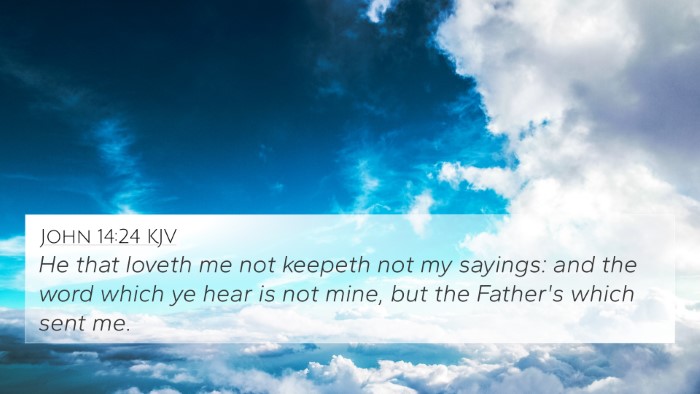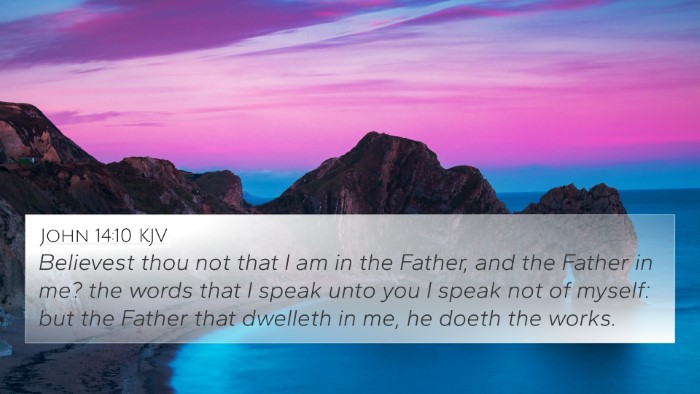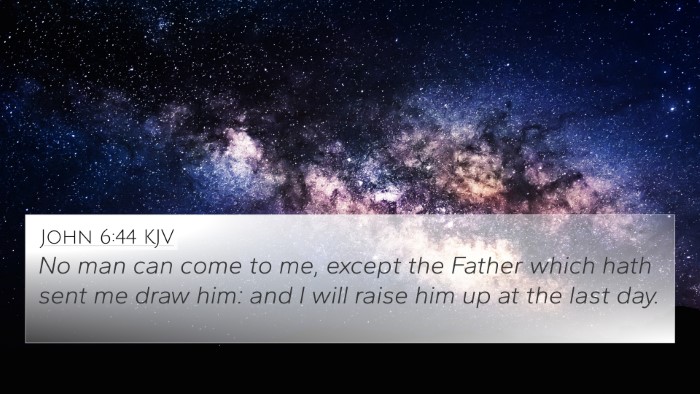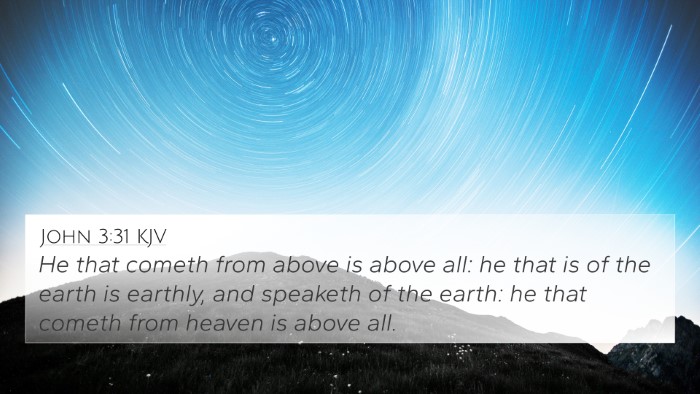Understanding John 7:16
John 7:16 states, "Jesus answered them, My doctrine is not mine, but his that sent me." This verse is pivotal as it elucidates the divine authority behind Jesus' teachings.
This explanation synthesizes insights from respected public domain commentaries, specifically those by Matthew Henry, Albert Barnes, and Adam Clarke, to provide a thorough understanding of this scripture.
Meaning and Context
In John 7, Jesus stands amidst a vibrant festival in Jerusalem, where he is challenged about his authority as a teacher. The crowd is skeptical, demanding to know from where his teachings derive.
Authority of Jesus’ Teachings
Matthew Henry emphasizes that Jesus' declaration of his doctrine not originating from himself highlights the uniqueness of his position. He is not merely another rabbi but rather a messenger of God, possessing divine endorsement.
Albert Barnes adds that this assertion serves to affirm Jesus’ relationship with the Father, establishing that the teachings he imparts carry weight and authority beyond human comprehension. His purpose is to reveal the truth of God rather than his personal interpretations.
Adam Clarke elaborates on this by pointing out that Jesus’ phrase, "his that sent me", indicates his obedience to the will of the Father, establishing a model for believers in seeking divine guidance in their lives.
Thematic Connections in the Bible
- John 5:30: "I can of mine own self do nothing..." emphasizes Jesus’ reliance on the Father's will.
- John 12:49: "For I have not spoken of myself; but the Father which sent me, he gave me a commandment..." illustrates divine direction in Jesus' mission.
- Matthew 28:18: Authority is granted to Jesus, indicating the divine source of his teachings.
- 1 John 2:17: Aligns with the enduring nature of the teachings originating from God.
- Philippians 2:8-11: Highlights obedience to the divine will as a hallmark of Jesus' life and ministry.
- Hebrews 5:8: Reflects on Jesus learning obedience through his experiences, reinforcing the theme of divine instruction.
- John 17:8: Jesus conveys the true words from the Father to his disciples, reinforcing the chain of revelation.
Cross-References and Their Implications
The connections between Bible verses can illuminate the depth of Jesus’ message in John 7:16. By cross-referencing these verses, themes can be further explored:
- Linking Bible scriptures: Understanding the divine origin of Jesus' teachings enhances our appreciation for the integrity and reliability of Scripture.
- Comparative Bible verse analysis: Examining these verses alongside John 7:16 reveals how consistently Jesus presents himself as a conduit for God's will.
- Inter-Biblical dialogue: The verses indicate a cohesive narrative throughout Scripture regarding the messianic mission, supporting cross-referencing themes of obedience and teaching.
Applying the Teaching
For believers today, John 7:16 invites introspection on how one's own teachings or beliefs are grounded. It poses the question: Are we seeking divine guidance in our understanding and sharing of the Word?
This verse encourages us to rely on God's authority, as Jesus did, and reminds us of the foundational importance of scripture in daily Christian life.
Tools for Bible Cross-Referencing
Utilizing tools such as a Bible concordance or a cross-reference Bible study guide can deepen understanding by helping to identify and explore connections between verses like John 7:16 and other scriptural references.
Conclusion
In summary, John 7:16 emphasizes the authority of Jesus' teachings, grounded in divine origin, as underscored by the analyses of public domain scholars. By engaging in cross-referencing and exploring connections between biblical texts, believers can enhance their understanding and application of scriptural truths.















